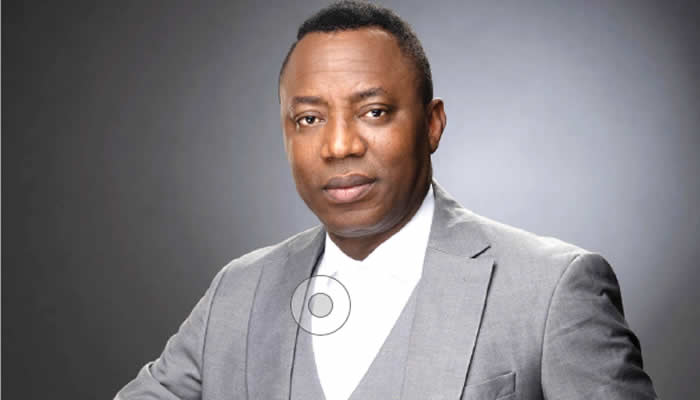Human rights activist and presidential candidate Omoyele Sowore has strongly criticised the newly formed opposition coalition gearing up for the 2027 general election, describing its key members as “country and destiny destroyers” responsible for Nigeria’s long-standing political dysfunction.
Appearing on Breakfast Central, a current affairs programme on News Central, Sowore dismissed the coalition and its adoption of the African Democratic Congress (ADC) as a political platform, saying the alliance is nothing more than a recycling of failed politicians under a new guise.
“These are not bridge builders,” Sowore declared during the interview.
“These are country and destiny destroyers who have come together. I have no doubts that I don’t need to be in bed with strange bedfellows.”
READ ALSO: Sowore: Coalition will secure, not stop, Tinubu’s re-election in 2027
The opposition coalition includes a number of prominent political figures such as former Vice President Atiku Abubakar, former Governors Peter Obi, Chibuike Amaechi, and Nasir El-Rufai, as well as former Senate President David Mark. Earlier this week, the coalition formally adopted the ADC as its political vehicle ahead of the 2027 presidential race.
But Sowore, who leads the African Action Congress (AAC), insists that many of these political veterans have had decades in power with little to show in terms of tangible progress for the country. According to him, the same individuals who contributed to the nation’s current problems cannot now claim to be its saviours.
“I cannot be on a bridge that has been built and broken by the same people, they have ruled Nigeria under various political parties—PDP, APC, and now ADC—and every time they return with the same broken promises and empty rhetoric,” he said.
Sowore’s criticism comes amid growing debate over the viability and credibility of the opposition coalition, which has positioned itself as a unified force to challenge President Bola Tinubu in 2027.
While the coalition boasts political diversity, drawing members from multiple parties and regions, critics argue that its leadership lacks ideological coherence and may struggle to present a credible alternative to the ruling All Progressives Congress (APC).
The activist-turned-politician, known for his unyielding stance on political reform and grassroots mobilisation, said he remains committed to building a new political movement independent of Nigeria’s traditional power brokers.
“Real change will not come from those who created the problem. Nigeria needs a new generation of leadership rooted in integrity, justice, and accountability.”
With the 2027 elections still over a year away, the future of the opposition coalition remains uncertain. While it has managed to rally significant political figures under one umbrella, Sowore’s comments highlight the ideological and trust challenges it must overcome to gain widespread public support.



